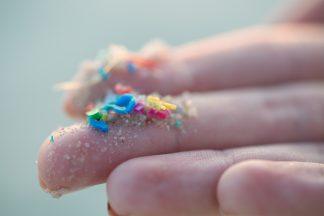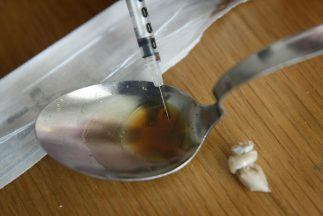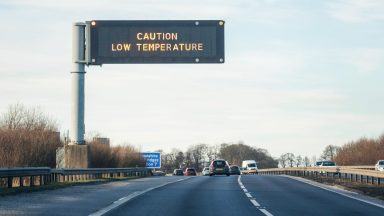New rules banning single-use plastics come into force in Scotland on Wednesday.
Businesses have been preparing for the new law and the public are being urged to make more sustainable choices.
Scotland will be the first UK nation to implement such legislation, which comes after a 12-week public consultation.
Here is everything you need to know about the new rules:
What single-use plastics are banned?
It will be unlawful to make and commercially supply the following items:
- Cutlery (forks, knives, spoons, chopsticks and other similar utensils)
- Plates
- Beverage stirrers
- Food containers made of expanded polystyrene
- Cups made of expanded polystyrene
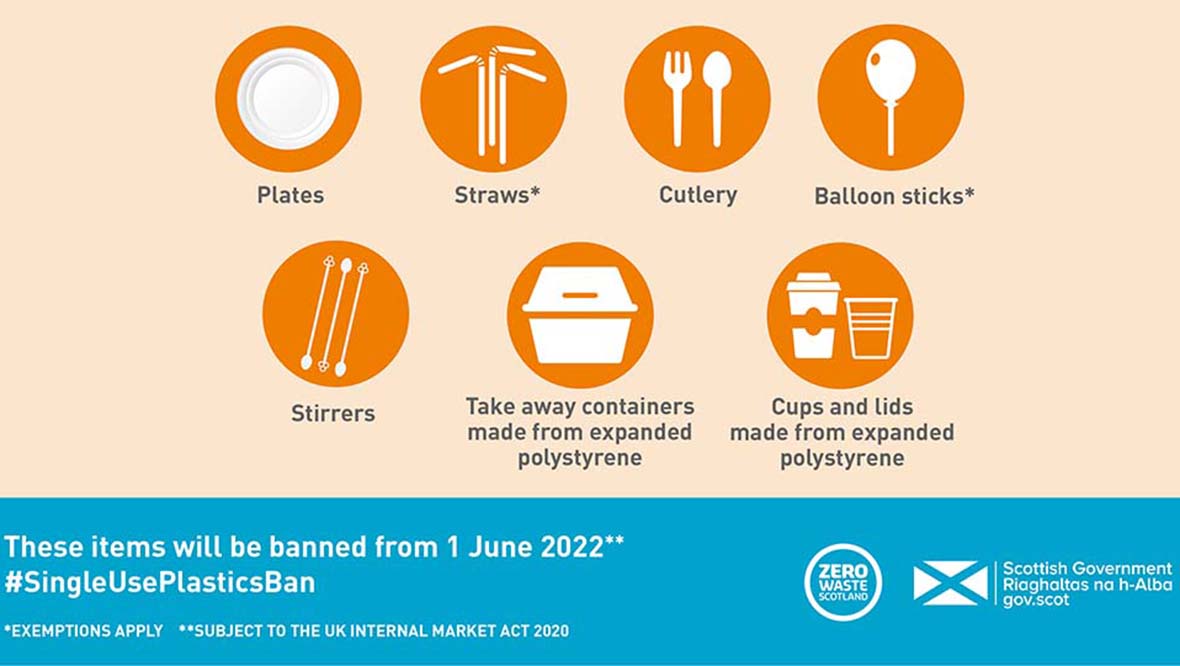 Zero Waste Scotland
Zero Waste ScotlandIt is also unlawful to supply commercially the following items, although exemptions allow them in certain settings and circumstances:
- Plastic straws
- Plastic balloon sticks
All the restrictions apply to both online and in-store sales, whether they are free or paid-for.
Enforcement will be the responsibility of local authorities. Failure to comply with the regulations carries a maximum fine of £5,000.
Why are plastic straws exempt in certain settings?
An exemption was made to ensure those who need them to eat or drink independently, or for medical purposes, can get access.
They will still be available to purchase at in-store or online pharmacies and given on request in hospitality venues – but won’t be routinely available in supermarkets or other shops.
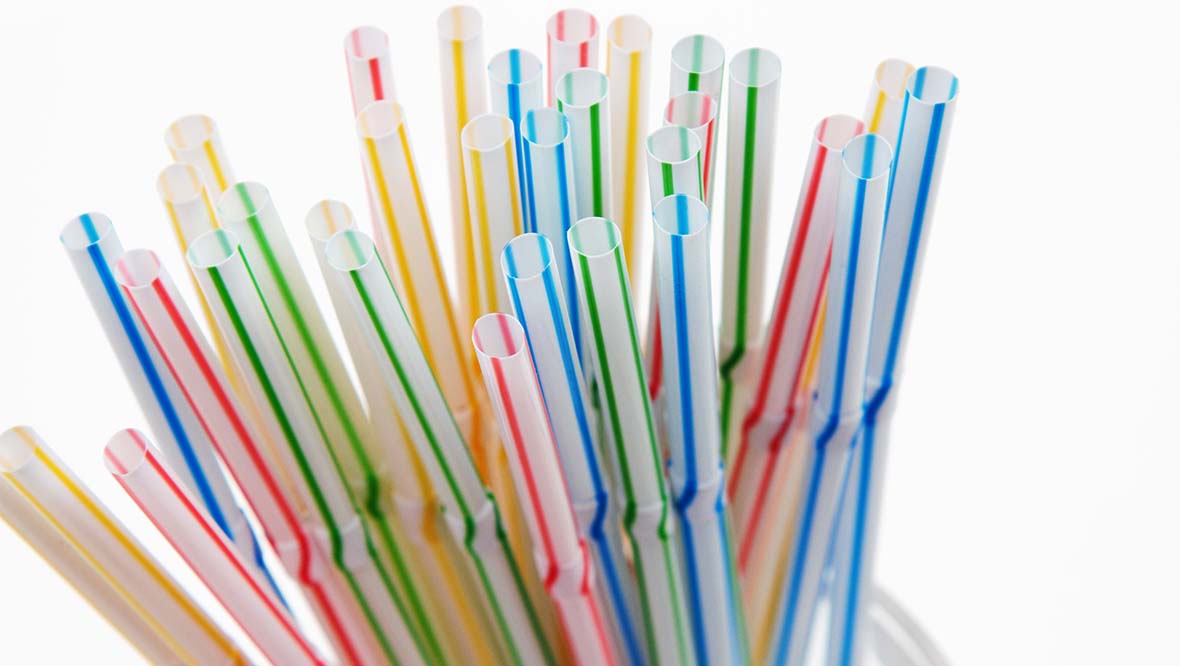 iStock
iStockPlastic straws can also still be accessed in hospitals, care homes, schools, early learning/childcare premises and prisons.
The regulations also provide an exemption for single-use plastic balloon sticks used for industrial or professional uses.
What should be used instead?
The Scottish Government says it wants reusable alternatives prioritised over substituting plastic for other materials.
For example, choosing metal reusable cutlery over single-use cutlery made of non-plastic materials.
The government believes problems caused by single-use items cannot be solved by replacing them with alternative single-use items made with different materials.
Zero Waste Scotland says this is “an opportunity to think differently and only use single-use items where absolutely required, saving money and helping to fight climate change”.
Is the rest of the UK doing this?
Scotland is the first part of the UK to introduce regulations on such a comprehensive list of items.
England has recently introduced restrictions on some items such as single-use plastic straws, beverage stirrers and cotton buds.
Wales launched a public consultation in August 2020, on restrictions for the items listed in the Single-Use Plastics Directive.
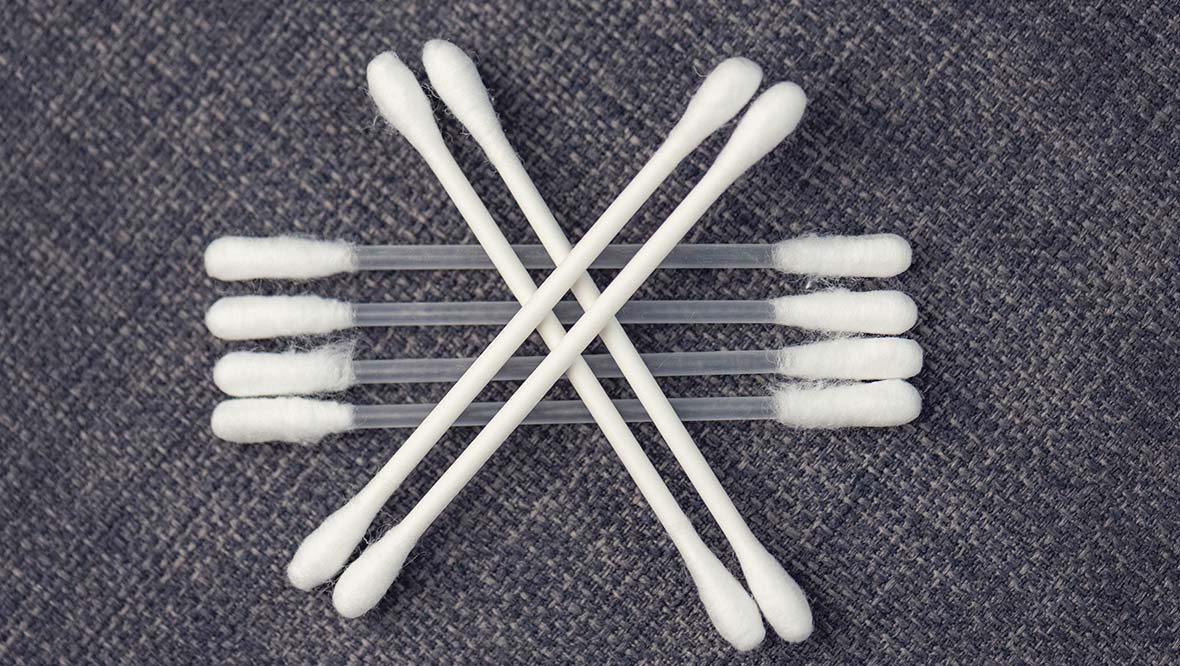 iStock
iStockNorthern Ireland must, as part of the UK/EU Withdrawal Agreement Northern Ireland Protocol, implement certain requirements set out in the Single-Use Plastics Directive.
Scotland became the first part of the UK to ban the sale of plastic cotton buds in 2019. A ban on the sale and manufacture of plastic microbeads was introduced the previous year, in June 2018.
Furthermore, the minimum cost of plastic carrier bags in Scotland rose to 10p last April, seven years after the 5p charge was introduced.
Can I still get a takeaway coffee cup?

Takeaway coffee cups are not affected by the new rules that come into effect on Wednesday.
But the Scottish Government is establishing an advisory group to look at plans to introduce a mandatory charge, as part of a crackdown on tackling waste across the country.
The charge would apply to coffee cups and other single-use disposable beverage containers.
It is hoped that by charging for single-use cups, more people will be encouraged to start using reusable alternatives, such as flasks.
In Scotland, it is estimated that around 40,000 disposable cups are dropped throughout the country each year.
Due to their waterproof plastic lining, the cups can be difficult to recycle, meaning that most of them are either incinerated or sent to landfill.
From 2024, larger coffee shops, fast food chains and others who sell drinks in disposable papers cups will have to provide a dedicated bin to collect and recycle them.
What is the Scottish Government’s view?
Circular economy minister Lorna Slater says the Scottish Government is “turning promise into action and banning some of the most problematic single-use plastic items in Scotland”.
She said: “Every year, hundreds of millions of pieces of single-use plastic are wasted in this country. They litter our coasts, pollute our oceans and contribute to the climate emergency.
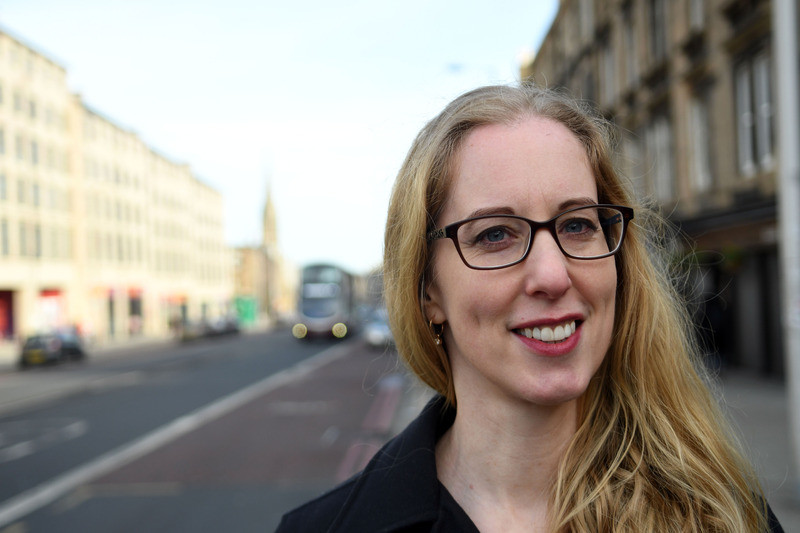 Scottish Greens
Scottish Greens“That has to end and this ban will be another step forward in the fight against plastic waste and throwaway culture.”
Follow STV News on WhatsApp
Scan the QR code on your mobile device for all the latest news from around the country


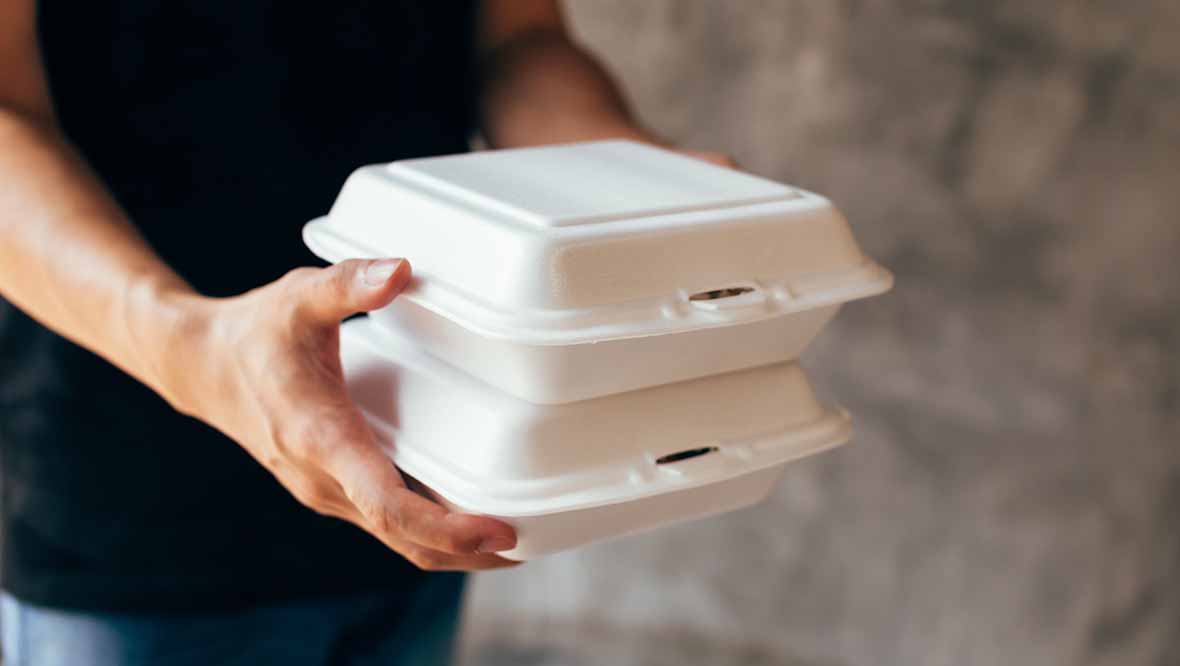 iStock
iStock









